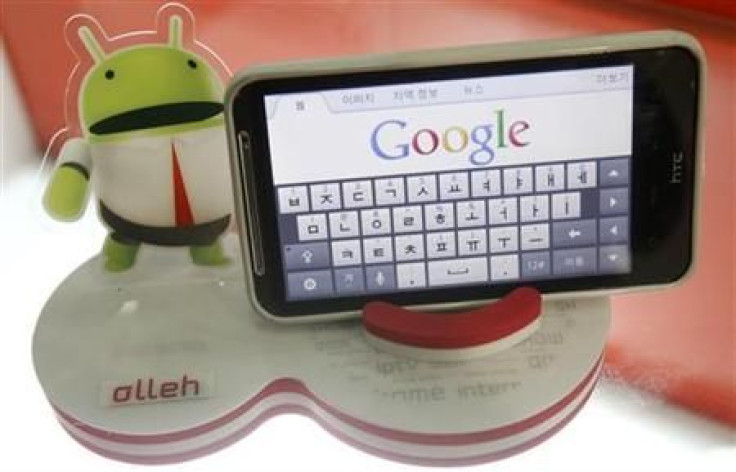Google Offers Support to Android Firms in Lawsuits

Google Inc will continue to offer support to firms using its Android system that are involved in legal disputes, its Chairman Eric Schmidt said Wednesday, as the Internet giant looks to cement alliances in the face of toughening competition.
Schmidt, wrapping up a three-city Asian tour in Taipei, also threw an olive branch to China, with which Google fell out over hacking and censorship disputes, saying the company wanted to serve China's citizens within the limits the government allowed.
We tell our partners, including the ones here in Taiwan, we will support them. For example we have been supporting HTC in its dispute with Apple because we think that the Apple thing is not correct, Schmidt told reporters during his first visit to Taipei.
The support takes the form of information sharing, industry expertise and access to Google's patents for licensing and legal purposes, Schmidt said.
Samsung Electronics Co, the world's biggest maker of mobile devices using Android, and Taiwanese smartphone maker HTC Corp, are both involved in patent disputes with Apple Inc. Some analysts see the disputes as Apple's way of attacking the Android system.
Apple co-founder Steve Jobs was quoted as saying in his authorized biography that he wanted to destroy Android, which has become the most popular smartphone platform.
Schmidt's visit also comes as Asian Android vendors are preparing to release their latest models based on Microsoft's Windows platform, seeking to diversify and reduce the risk of being depending too heavily on Google.
Android hardware companies and supply chain are mostly from Taiwan. The main purpose of Schmidt's trip for this time should be to gain more support and closer collaboration with the Taiwanese here, said Concord Securities analyst Ming Chi Kuo.
Taiwanese vendors have been users of Windows operating system in the past, especially the handset vendors, so Google has to come here to get more support for its applications in the tablets and, possibly, personal computers in the future, Kuo said.
An executive of one Taiwanese company who met Schmidt on Wednesday said he raised concerns over the patent disputes surrounding Android and Schmidt acknowledged the issue .
The executive did not want to be identified because the meeting was confidential.
The previous day, Schmidt, in his second visit to Korea, met executives from handset manufacturers Samsung and LG Electronics, in a move widely seen as reassuring his alliances with handset manufacturers.
Google's $12.5 billion acquisition of Motorola Mobility Holdings, announced in August, raised concerns it may become a key rival of Android licensees.
Schmidt also visited Beijing during his trip. Google closed its Chinese Google.cn service last year after a high-profile fallout with Beijing over censorship and began re-directing all traffic to its Hong Kong server.
In June this year, Google said a hacking attack on its Gmail email service may have come from China, drawing a sharp rebuke from Beijing.
Google is still having a growing and profitable business in China with its display and search services, Schmidt said.
(Additional reporting by Jialu Chen in TAIPEI and Tarmo Virki in HELSINKI; Editing by Matt Driskill and Miyoung Kim)
© Copyright Thomson Reuters 2024. All rights reserved.











